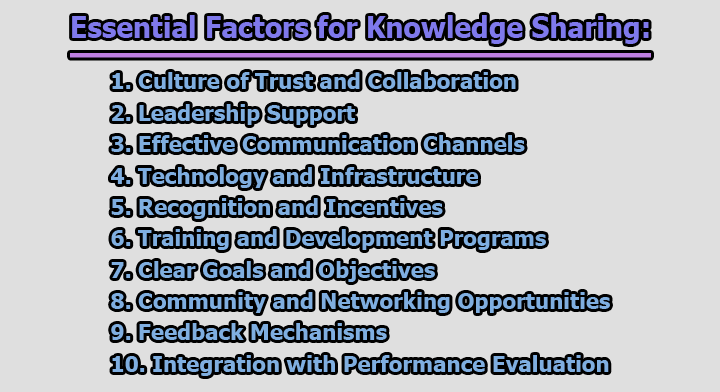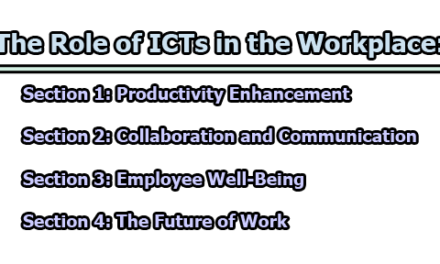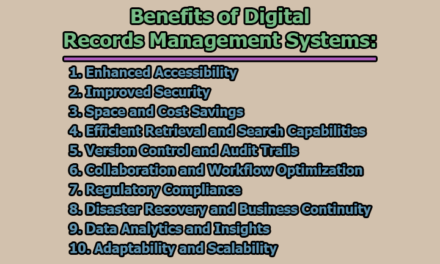Essential Factors and Barriers to Knowledge Sharing:
Knowledge sharing is a fundamental aspect of organizational success and individual growth. In the rapidly evolving landscape of the modern workplace, the ability to share and leverage knowledge has become a crucial factor for innovation, problem-solving, and overall efficiency. However, the journey toward effective knowledge sharing is not without its challenges. Here, we will explore the essential factors for knowledge sharing and barriers to knowledge sharing.
Essential Factors for Knowledge Sharing:
Knowledge sharing is a critical component of organizational success, fostering innovation, enhancing problem-solving capabilities, and promoting overall efficiency. To create an environment where knowledge flows seamlessly, several essential factors must be considered and nurtured within the organizational framework.
1. Culture of Trust and Collaboration: At the core of successful knowledge sharing lies a culture of trust and collaboration. When employees feel confident that their contributions will be valued and respected, they are more likely to share their insights and expertise. Trust is the foundation upon which effective collaboration is built, enabling a free exchange of ideas without the fear of judgment or negative consequences.
2. Leadership Support: Leadership plays a pivotal role in shaping organizational culture. When leaders actively endorse and participate in knowledge-sharing initiatives, it sends a powerful message to the entire workforce. Leadership support can manifest in various forms, such as allocating resources, providing time for knowledge-sharing activities, and recognizing and rewarding those who actively contribute to the sharing of knowledge.
3. Effective Communication Channels: Creating and maintaining diverse and effective communication channels is essential for knowledge sharing. Organizations need to provide a mix of formal and informal channels, including meetings, training sessions, digital platforms, discussion forums, and social media. The accessibility and usability of these channels are crucial to encourage employees to share their knowledge openly.
4. Technology and Infrastructure: A technologically advanced infrastructure can significantly enhance knowledge-sharing capabilities. Modern collaboration tools, knowledge management systems, and intranet platforms facilitate the creation, sharing, and access to information. The right technological environment not only streamlines the knowledge-sharing process but also makes it more appealing and user-friendly for employees.
5. Recognition and Incentives: Recognizing and rewarding individuals for their knowledge-sharing efforts is a powerful motivator. This acknowledgment can take various forms, including monetary rewards, career development opportunities, and public recognition within the organization. Incentives create a positive feedback loop, encouraging employees to actively participate in knowledge-sharing activities.
6. Training and Development Programs: Ongoing training and development programs are crucial for creating a continuous learning culture within the organization. When employees are equipped with the necessary skills and knowledge for their roles, they become more confident in sharing their expertise. These programs should not only focus on technical skills but also on soft skills like communication, collaboration, and effective knowledge-sharing practices.
7. Clear Goals and Objectives: Establishing clear goals and objectives for knowledge sharing provides a sense of purpose and direction. When employees understand the organizational objectives related to knowledge sharing, they are more likely to align their efforts with these goals. Clear expectations help create a focused and purpose-driven approach to knowledge sharing.
8. Community and Networking Opportunities: Building communities and fostering networking opportunities within the organization can enhance knowledge sharing. Whether through formal mentorship programs, cross-functional teams, or collaborative projects, creating spaces for employees to connect and share their expertise encourages a sense of community and facilitates the exchange of knowledge across different departments and levels.
9. Feedback Mechanisms: Establishing effective feedback mechanisms is crucial for refining the knowledge-sharing process. Encouraging constructive feedback not only helps individuals improve their contributions but also enhances the overall quality of shared knowledge. Regular evaluations and adjustments based on feedback contribute to a dynamic and evolving knowledge-sharing ecosystem.
10. Integration with Performance Evaluation: Incorporating knowledge-sharing metrics into performance evaluations reinforces the importance of sharing knowledge as a valuable contribution to the organization. This integration aligns individual performance with organizational objectives, encouraging employees to actively engage in knowledge-sharing activities as an integral part of their roles.
Barriers to Knowledge Sharing:
Here are some of the noticeable barriers to knowledge sharing:
1. Lack of Trust: Trust is a cornerstone of successful knowledge sharing. When employees perceive a lack of trust in the organization, they may be hesitant to share their knowledge for fear of negative consequences. Building trust requires a commitment to transparency, consistency, and open communication, fostering an environment where individuals feel secure in sharing their insights.
2. Fear of Judgment: The fear of judgment can be a powerful deterrent to knowledge sharing. Employees may worry about how their ideas or contributions will be perceived by colleagues or superiors. Overcoming this barrier involves creating a non-judgmental culture that emphasizes the value of diverse perspectives and treats mistakes as opportunities for learning and improvement.
3. Inadequate Communication Channels: If organizations lack effective and accessible communication channels, knowledge sharing becomes challenging. Outdated or inefficient platforms hinder the flow of information, making it difficult for employees to share their insights. Investing in modern and user-friendly communication tools is essential to overcoming this barrier.
4. Competitive Organizational Culture: In highly competitive environments, employees may view knowledge as a source of power and job security. This mindset can lead to knowledge hoarding, where individuals are reluctant to share information that could potentially give others a competitive advantage. Shifting towards a collaborative culture that emphasizes collective success is essential to breaking down this barrier.
5. Lack of Leadership Support: Leadership plays a pivotal role in shaping organizational culture. When leaders do not actively support or participate in knowledge-sharing initiatives, it sends a message that these activities are not a priority. Leadership endorsement is crucial for creating a culture where knowledge sharing is valued and integrated into the organization’s strategic goals.
6. Technological Challenges: Inadequate or outdated technological infrastructure can impede knowledge sharing. Difficulties in accessing information, incompatible platforms, and a lack of user-friendly interfaces discourage employees from actively engaging in knowledge-sharing activities. Investing in modern technology and providing adequate training can help overcome these challenges.
7. Time Constraints: Heavy workloads and time constraints often limit employees’ ability to engage in knowledge-sharing activities. When individuals are overwhelmed with their primary responsibilities, they may perceive knowledge sharing as an additional burden. Organizations need to recognize the importance of allocating sufficient time and resources for these activities to ensure they are not neglected.
8. Organizational Silos: Siloed structures within organizations can hinder the free flow of information across departments and teams. When information is confined to specific silos, valuable knowledge may not reach those who could benefit from it. Breaking down silos through cross-functional collaboration and open communication channels is essential for overcoming this barrier.
9. Lack of Recognition: The absence of recognition for knowledge-sharing efforts can demotivate employees. If individuals do not see the value of sharing their insights, they may be less inclined to actively participate. Recognizing and rewarding employees for their contributions creates a positive feedback loop, encouraging continued engagement in knowledge-sharing activities.
10. Cultural and Linguistic Barriers: In multinational organizations, cultural and linguistic differences can pose challenges to effective knowledge sharing. Different cultural norms and communication styles may impact how information is conveyed and received. Providing cultural sensitivity training and adopting inclusive communication practices can help bridge these gaps.
11. Resistance to Change: Resistance to change is a common barrier to implementing new knowledge-sharing initiatives. Employees may be comfortable with existing processes and resist adopting new tools or practices. Overcoming this barrier requires effective change management strategies, including clear communication about the benefits of knowledge sharing and providing support during the transition.
12. Lack of Clear Objectives: Without clear goals and objectives related to knowledge sharing, employees may struggle to understand the purpose of their contributions. Establishing clear expectations and aligning knowledge-sharing activities with organizational objectives provides a sense of purpose, motivating individuals to actively participate.
In conclusion, fostering a culture of knowledge sharing requires a multi-faceted approach that addresses both the essential factors and barriers involved. Organizations must actively cultivate trust, encourage collaboration, and provide the necessary support and resources to facilitate knowledge sharing. Overcoming barriers, such as fear of judgment and inadequate communication channels, requires a concerted effort to reshape organizational culture and promote a mindset of openness and collaboration.
As technology continues to evolve, organizations must stay agile in adapting their communication infrastructure to support knowledge sharing effectively. By investing in the right technology, providing ongoing training, and recognizing and rewarding contributions, organizations can unlock the full potential of knowledge sharing, driving innovation and success in the ever-changing landscape of the modern workplace.

Library Lecturer at Nurul Amin Degree College










